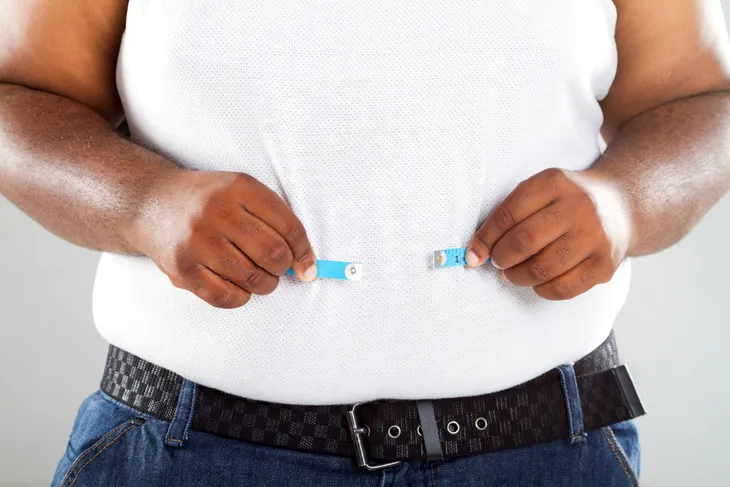It seems like every day we are faced with another study or claim that may impact our health. From the latest superfood to cancer causer, the average health-focused consumer can become overwhelmed (and frustrated) by the constant borage of health claims.
In order to make sense of the many senseless infomercials touting the latest and quickest weight loss products or tummy tightener tactics, there are a few tips that may help to weed out the snake oil from the sanity…
1. Too Good to Be True Claims
We have all experienced that desire that comes with buying into the promises of quick and easy fat loss and beauty. From miracle creams that doctors don’t want you to know about to exercise equipment that will whittle the waistline within a few weeks, we have all been seduced to believe (or hope) maybe this time it will work.
The sad reality is there will never be gold at the end of that rainbow. If something appears too good to be true…it is. There has yet to be a magic pill that will reap the benefits without having to put out the effort. Good health, weight loss, and enhanced energy take time, patience, and commitment (sadly enough).
2. Are the Claims Based on Independent Research?
Not too long ago a walking shoe was created promising the consumer tighter and more attractive legs just by wearing the shoe. Celebrities were photographed using this product and swore by the amazing results. Fortunately, the Exercise and Health program at the University of Wisconsin performed one of the first independent studies on this miracle product demonstrating the claims were false.
At times there will come a trendy product that motivates independent research (having no relationship with the manufacturer). It is only through this research that the public is made aware of what is fact and what is fallacy. We can access this research through Google Scholar. This search engine will only find academic research from universities all over the world. It may not be perfect, but it’s a step towards being more informed.
3. Who’s Paying for the Research?
It takes a full purse to conduct research. For many academic researchers, grants are provided from a variety of funding agencies to support the proposed studies. At the same time, manufacturers and companies are also looking for researchers to study their products and programs with the hopes of academic support.
The unfortunate result may include a bias towards the company funding the study. For example, if a sports drink company funds research examining the effectiveness of their sports drink, the results may lean in their favor because they hold the purse strings. While it may not influence the results, the question of bias is now present and may taint the findings.
4. Who Are the Research Participants?
Who exactly tests the equipment, powders, or potions sold as the latest quick fix anyway? Back in the old days, exercise scientists would use young 20-something males (university students) as their subjects. Therefore, many of the conclusions of these studies can only really relate to young 20-something males.
Has the study been conducted with rats or humans? Has it been applied to the target population? For example, if a product promises fat loss in women over 50, did the company use this population? To understand how this magic product has been applied may help us understand how effective it may or may not be.
5. Are the Claims Based on Testimonials?
Testimonials are some of the most popular ways products are marketed. Flipping through any fitness magazine, we are overcome (and a little intrigued) by the “before and after” pictures of those celebrating their weight loss triumphs. Just because our favorite Hollywood celebrity is touting the latest vitamin water doesn’t make it any better than the water from the tap.
Testimonials are a great way to grab our attention and influence us to buy the product. If they can use it and succeed, why could we? Be aware of testimonials especially if it is the sole marketing tool of the product. If this is the case, it may be a good indication there is nothing else to back up the claims being made.
6. Is this a Lifetime Commitment?
Another important question to ask, before purchasing the product or service, relates to our commitment to sustain it for life. For example, a person decides to purchase weight loss powder to lose those pesky pounds and succeeds over the short term. Once he goes back to eating normally the pounds creep back (not surprisingly). Eating and exercise programs are in abundance, but most cannot be sustained for a lifetime.
If we are able to find a product or program that takes into account our lifestyle, values, needs, and challenges, this product may be the one for us. Until then, it’s all just smoke and mirrors with the hopes of selling us another chance to fail.
7. The Bigger Picture
Recently, we heard from the World Health Organization about the health concerns related to processed and red meats. While it may be noted that eating a diet high in processed meats is related to higher rates of certain cancers, eating the odd hot dog will not have the same effect. When proclamations such as this occur (and they will occur often) it is important to take a step back and look at the bigger picture.
Our diets play a small role towards cancer prevention. If we take into account stress, physical inactivity, environments, addictions, and mental health (just to name a few) we are more able to apply a healthy dose of critical thinking to such claims without suffering the panic that comes with tunnel vision.
8. Other Factors Considered…
When studies proclaim that obesity kills what exactly are they saying and how did they come to that conclusion? Paul Campos, author of The Obesity Myth, has suggested that the variables for an early death include an inactive lifestyle coupled with an unhealthy diet (versus obesity itself). Moreover, these two variables can lead to obesity, but obesity may not be the sole perpetrator of a shortened life span. So is it the obesity that kills or the diet and lifestyle factors? Unfortunately, there have been few studies to separate obesity from the other factors.
When studies use the term correlation they are referring to a relationship between two factors. For example, there is a correlation between obesity and chronic disease. When studies use the term causation, we can assume that one factor has caused the other. According to Campos, and a large number of researchers, the obesity claim has yet to show causation.
9. Short Term vs. Long Term Studies
When it comes to nutritional science, this is an important question to consider. There are many products that have come on the market recently that have yet to show long term benefits or effects on health. For example, the final word is still out on the long term effects of energy drinks on our health.
Researchers Naren Gunja and Jared Brown published a study in the Medical Journal of Australia in 2012 suggesting that there are many concerning effects of energy drink consumption among youth. Additionally, the long term studies on the adverse health effects from sports supplementation are still few and far between. From energy drinks to bio-foods (that promise enhanced vitamins and minerals) there remain many unanswered questions. The key is to approach each product with care and enough awareness to make informed (and healthy) choices.
10. If All Fails…Trust Your Gut!
We all have our own internal barometer that helps guide us in making healthy decisions for ourselves and our families. From pulling our hand away from a hot element to deciding on purchasing that second hand bike helmet, we usually will side with the safer and more life affirming option (fingers crossed).
Such rules of thumb, when confronted with a new and promising health product, may include invoking the “too good to be true” rule while quickly scanning the internet for clues. Although there may be times we are suckered into trying out those nicotine tights or vibration plates with high hopes, making critical thinking a habit may be one of the healthiest choices we make.













